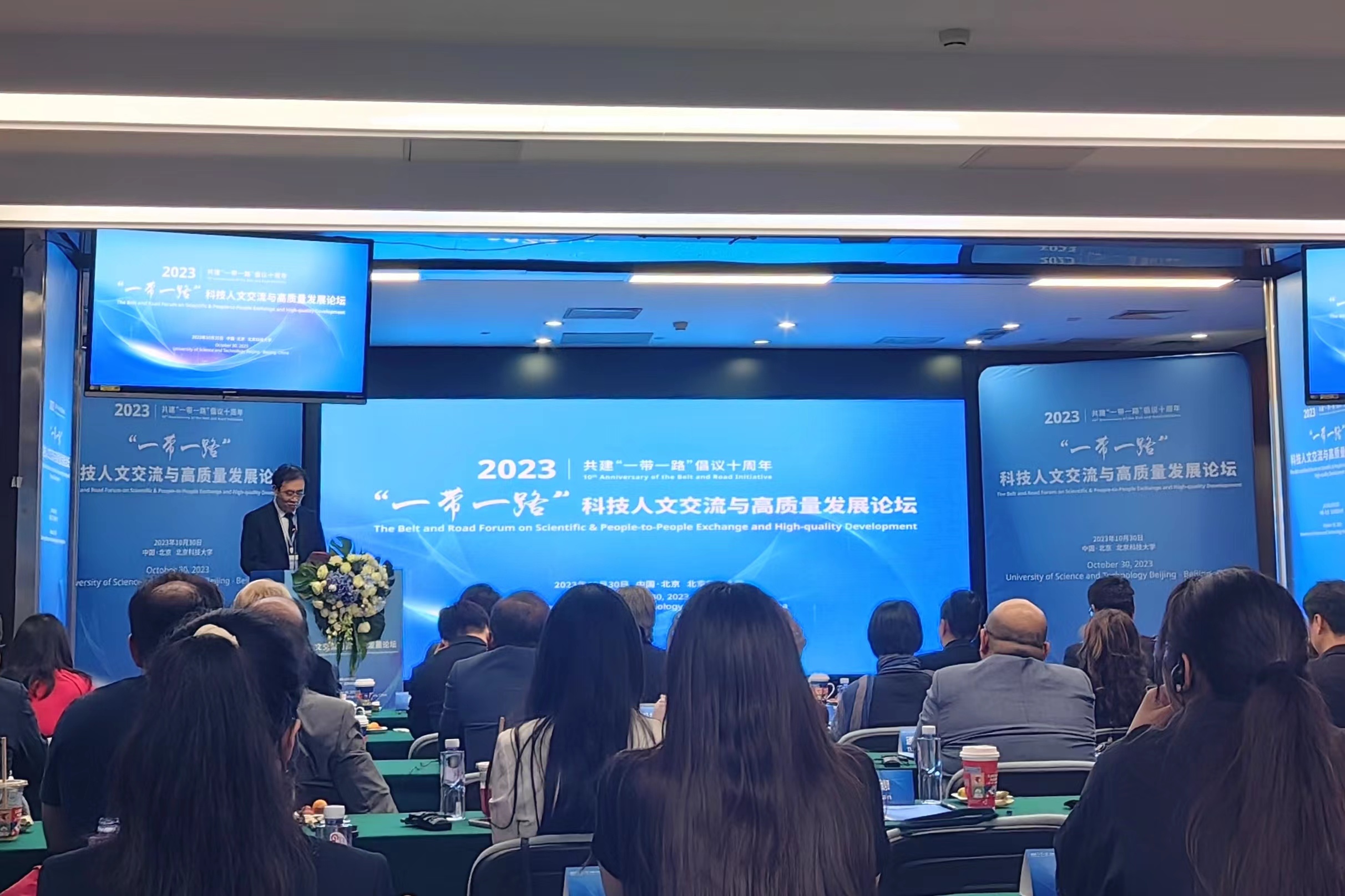BRI Science and Education Exchanges Flourish
By ZHONG Jianli
At the third Belt and Road Forum for International Cooperation held in Beijing in mid-October, China announced eight steps to support high-quality BRI cooperation, including advancing scientific and technological innovation and supporting people-to-people exchanges.
Scientific cooperation and exchanges received another boost when the Belt and Road Forum on Scientific and People-to-people Exchange and High-quality Development followed on October 30 at the University of Science and Technology Beijing (USTB).

The Belt and Road Forum on Scientific and People-to-people Exchange and High-quality Development is?held?at the University of Science and Technology Beijing (USTB)?on October 30.
"The forum … is not only to showcase outstanding results of Belt and Road Initiative (BRI) scientific and people-to-people exchanges, but also to take real actions to implement these steps," said Cao Diefeng, deputy director of the China Center for International People-to-People Exchange, Ministry of Education.
The Center has carried out various international sci-tech communication and cooperation projects, such as in the mining and steel industries.
Lkhanaajav Munkhtushig, deputy head of the Mongolian Embassy in China, said cooperation between China and Mongolia has made steady progress in various areas, including science, health, infrastructure and the environment. He expected more exchanges between the two countries' institutions of higher education to promote high-quality BRI cooperation.
"With joint efforts from all partner countries, the BRI has evolved from China's proposal to an international practice. The educational cooperation under the BRI has also been expanded and achieved good results," said Wu Guilong, chancellor of the USTB.
Yang Renshu, president of the USTB, shared the university's experience in promoting sci-tech educational cooperation with BRI partner countries. The university has carried out joint R&D with foreign universities, and aims to create a new platform for academic research, decision-making consulting, technical services, personnel training and people-to-people exchanges.
Talking about how to build a future-oriented talent cultivation system, Ewe Hong Tat, president of the Tunku Abdul Rahman University in Malaysia, said with the next wave of technological revolution, students should not only have the ability to find solutions to new challenges, but should also be given moral and ethical education.
Deep integration of industries, universities and research institutions is essential for high-quality BRI cooperation.
Zhang Xiaodong, chairman of the Zhongguancun Belt and Road Industrial Promotion Association, said the BRI provides some certainties in this uncertain world. He also said China's first high-tech industrial park, the Zhongguancun Science Park, has rich sci-tech innovation experience, which can be shared with BRI partner countries.
"The BRI has achieved impressive results over the past 10 years and has contributed to the interconnectedness of the world," said Saule Aidarova, director of the Kazakh-British Technical University in Almaty, Kazakhstan, adding that to meet industries' needs for new technologies and training in the priority areas of the BRI, mechanisms for joint research and educational and sci-tech cooperation should be developed.







